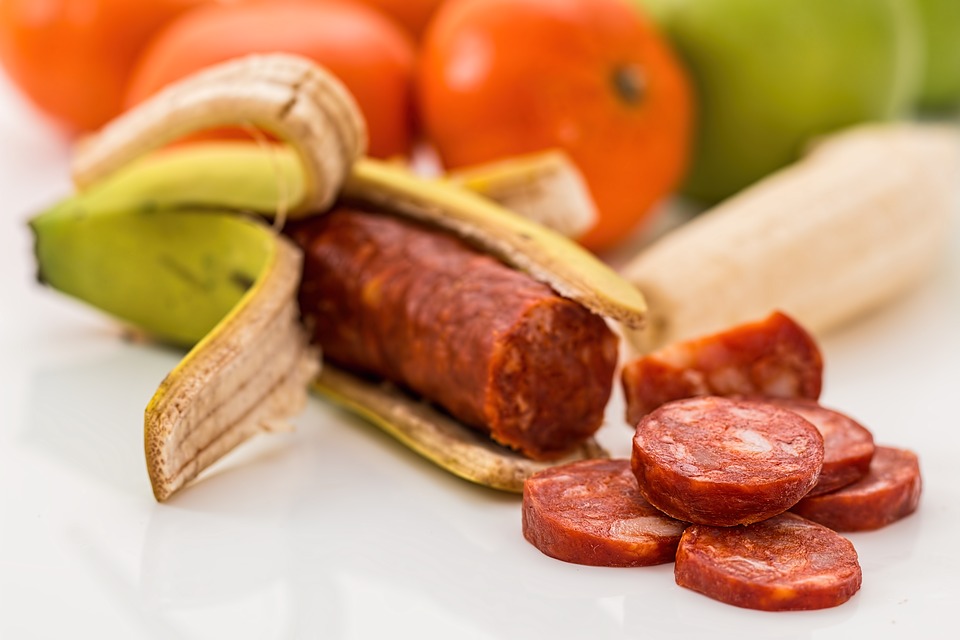
A new study led by researchers at UCL finds that people who eat more ultra-processed foods (UPF) are at increased risk of developing type 2 diabetes, but this risk can be lowered by consuming less processed foods instead.
The study, published in The Lancet Regional Health—Europe in collaboration with experts from the University of Cambridge and Imperial College London, examined the connection between the extent of food processing and the risk of type 2 diabetes. It also examined which types of ultra-processed foods (UPF) posed the highest risk.
The team analysed UPF intake and health outcomes for 311,892 individuals from eight European countries over an average of 10.9 years, during which time 14,236 people developed type 2 diabetes.
They discovered that a 10% increase in the consumption of ultra-processed foods is associated with a 17% rise in the risk of type 2 diabetes, but this risk can be reduced by opting for less processed foods instead.
The highest-risk UPF groups were savoury snacks, animal-based products such as processed meats, ready meals, and sugar-sweetened and artificially sweetened beverages, suggesting that particular attention should be paid to these foods to help tackle ill health.
The degree of food processing is commonly evaluated using the Nova classification. This classification divides foods into four groups:
1. Unprocessed or minimally processed foods (MPF), such as eggs, milk, and fruit.
2. Processed culinary ingredients (PCI), such as salt, butter, and oil.
3. Processed foods (PF), including tinned fish, beer, and cheese
.4. Ultra-processed foods, such as ready-to-eat or ready-to-heat mixed dishes, savoury snacks, sweets, and desserts.
The specific reasons for the connection between UPF and type 2 diabetes are not confirmed, although several factors are believed to be involved, including overconsumption and weight gain. In a prior study, supported by new analysis in this study, it was found that increased body fat contributed to about half of the association.
Samuel Dicken, the first author of the study from the UCL Division of Medicine, stated, “We are aware that ultra-processed foods are linked to a higher risk of certain diseases, such as type 2 diabetes. As anticipated, our findings validate this connection and demonstrate that a 10% increase in the consumption of ultra-processed foods significantly increases the risk of developing type 2 diabetes.”
“Most studies to date have only considered ultra-processed foods (UPF) as a whole. However, we suspect that there may be different health risks associated with different types of UPF, and the risks of other processing groups have not been well researched. Our analysis goes further than previous studies by examining all four processing groups in the Nova classification to assess the impact on type 2 diabetes risk when substituting UPF with less processed foods. Additionally, we are looking at nine subgroups of UPF to better understand their impact.”
Replacing UPF with less processed foods was linked to a reduced risk of type 2 diabetes.
In the study, researchers from UCL analyzed data from the EPIC study, which investigated the relationship between diet, lifestyle, and environmental factors, and the incidence of chronic diseases in more than half a million Europeans over time.
Additional analysis was conducted to separate UPF into nine subgroups to better understand the impact of processing level on type 2 diabetes risk.
The researchers also performed substitution modelling on the data to see how replacing one Nova food group with another would affect type 2 diabetes risk, alongside analyzing how eating UPF affected a person’s risk of developing type 2 diabetes.
The results showed that substituting 10% of UPF in the diet with 10% of MPF/PCI reduced type 2 diabetes risk by 14%.
When 10% of ultra-processed food (UPF) in the diet was replaced with 10% of processed food (PF), the risk of diabetes decreased by 18%. The authors suggest that this could be due to the fact that 30-50% of processed food intake in the study came from beer and wine, which have been linked to a reduced risk of type 2 diabetes in a previous EPIC study. Processed food also includes salted nuts, artisanal breads, and preserved fruits and vegetables.
Analysis of the nine UPF subgroups indicates that savoury snacks, animal-based products, ready meals, and sugar-sweetened and artificially sweetened beverages are linked to a higher incidence of type 2 diabetes.
Consuming large amounts of these less healthy foods increases the overall risk of developing type 2 diabetes. Among the top 25% of highly processed food consumers, where highly processed foods made up 23.5% of their total diet, sweetened beverages alone contributed to almost 40% of their highly processed food intake and 9% of their overall diet.
However, UPF breads, biscuits, breakfast cereals, sweets, desserts, and plant-based alternatives were associated with a lower incidence of type 2 diabetes.
Professor Rachel Batterham, the senior author of the study from the UCL Division of Medicine, stated, “The subgroup analysis of ultra-processed foods (UPF) in this study has been revealing and confirms that not all foods classified as UPF pose the same health risks.”
“Breads and cereals, for example, are a staple of many people’s diets. Based on our results, I think we should treat them differently than savory snacks or sugary drinks in terms of the dietary advice we provide.”